For hundreds of years the Khanty people of Western Siberia have lived in harmony with nature. But as the oil industry seizes more and more of their land, their animals perish in oil spills and reindeer herders are losing their last pastures.
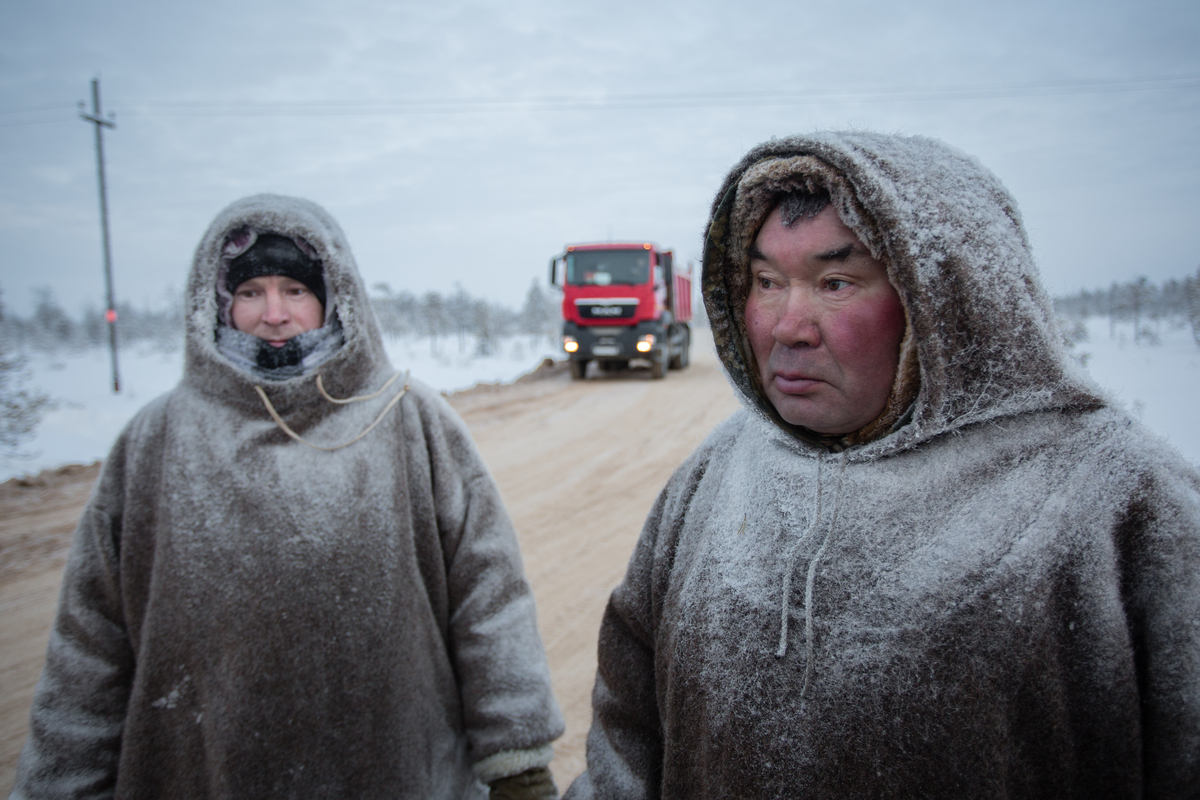
The construction of a road on the Sopochin family ancestral lands. The Sopochin family ancestral lands are squeezed between two oil companies. This is the last land where deer can still graze. T
The Sopochin are a large family of Khanty people. Born and raised on ancestral lands in the forest tundra, they are among those who still preserve their Indigenous culture and way of life in the industry-dominated modern world.
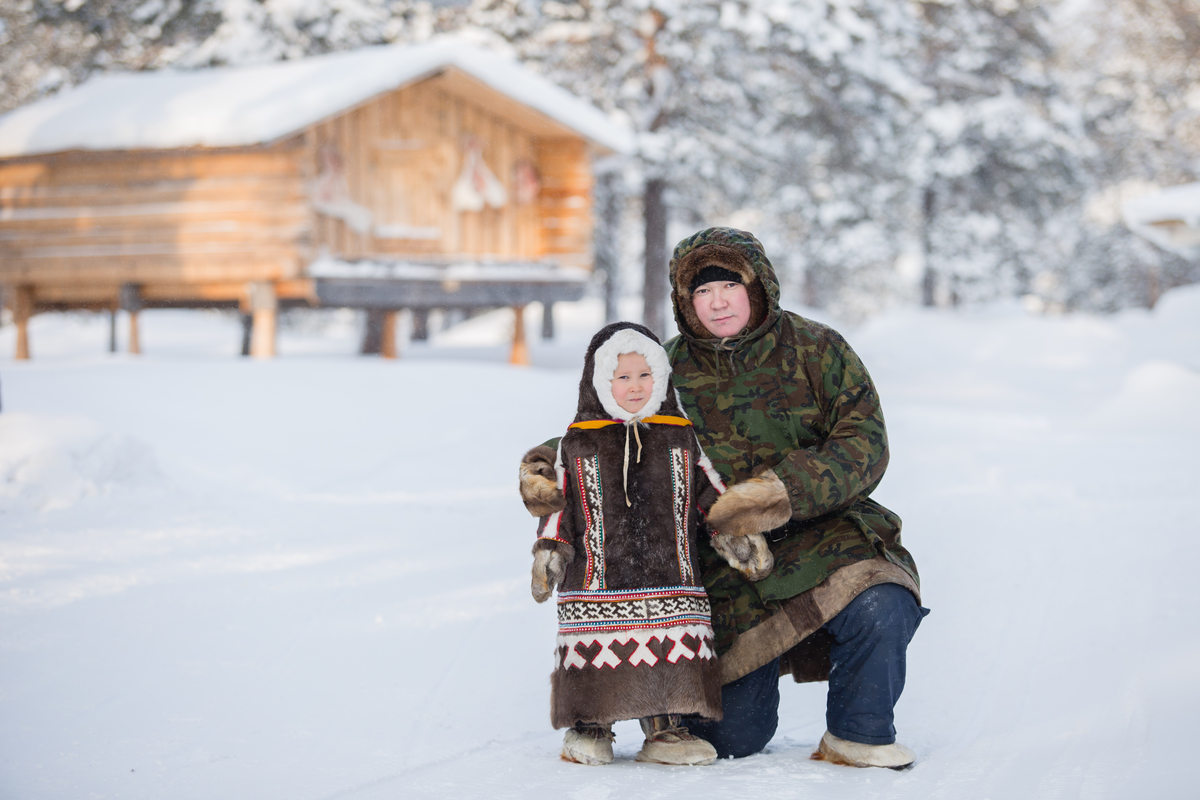
The Sopochins are a large family of Khanty people. They preserve the traditional way of life and distinctive culture in the modern world.
Their ancestral land stretches far across the horizon: 16 families of reindeer herders live on almost the same area that Russia’s capital city, Moscow, occupied in 2011 (before the addition of New Moscow in the south-west).
A large area of land is essential for the families’ survival in the tundra: with low temperatures and short growing seasons, farming is not sustainable, so Indigenous people breed deer, hunt, fish and gather berries.
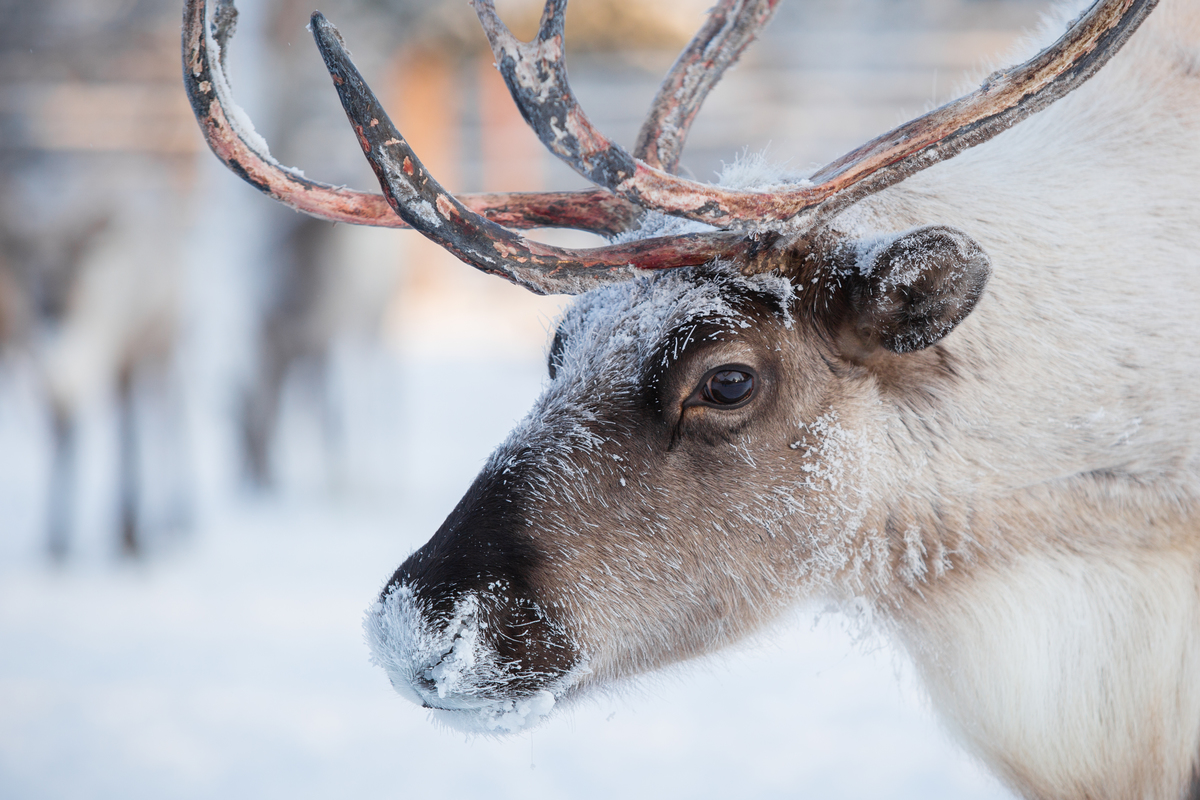
The Sopochins family has more than 200 deer. Each of them is important, because usually a female deer gives birth to only one deer per year. Female deer always go to the same safe place for giving birth. But the oil industry is building the road in that place.
Deer feed on grass and yagel (lichens, which grow very slowly, only 3-5 mm per year), so they can’t graze in one place for long. That’s why reindeer herders need a large range.
But this delicate balance with nature is under threat. Everything the Sopochin value is now in danger. The subsidiary company of Gazprom Neft has announced plans to extract oil and gas on their ancestral lands.
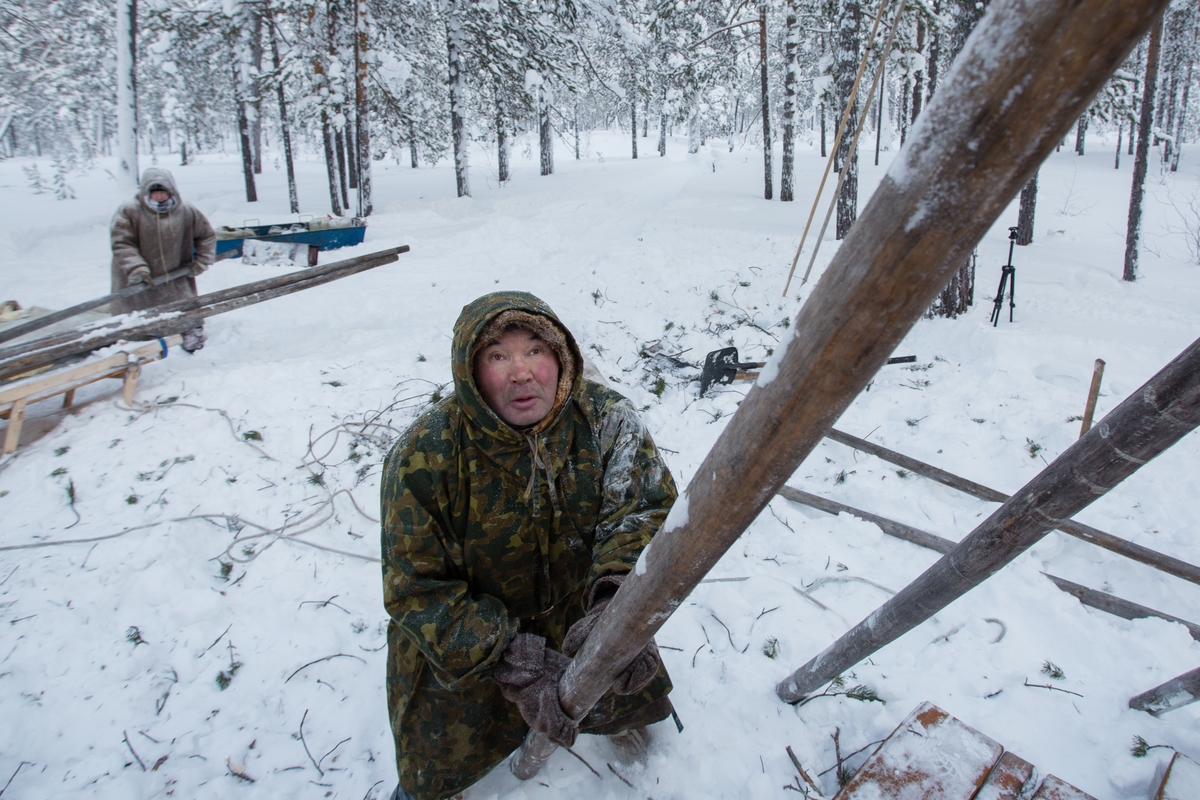
The Sopochin family protests against the construction of a road in their land. The subsidiary company of Gazprom Neft is building a road, without reindeer herders approval, where female reindeer calve in the spring. The Sopochin family reindeer herders have built their traditional tent where construction vehicles pass by.
The area is in a watershed where oil pollution can affect water in streams and rivers from which many people and animals drink, far beyond these lands. Even before oil production begins, the company conducts exploratory work and builds its infrastructure. The reindeer pastures will be cut by roads.
The situation is getting worse as we speak. The Sopochin are already squeezed between two oil companies. This is the last land where they can still graze deer. But now, the subsidiary company of Gazprom Neft is building a road, without consulting reindeer herders, in the place where female reindeer come to calve in the spring.
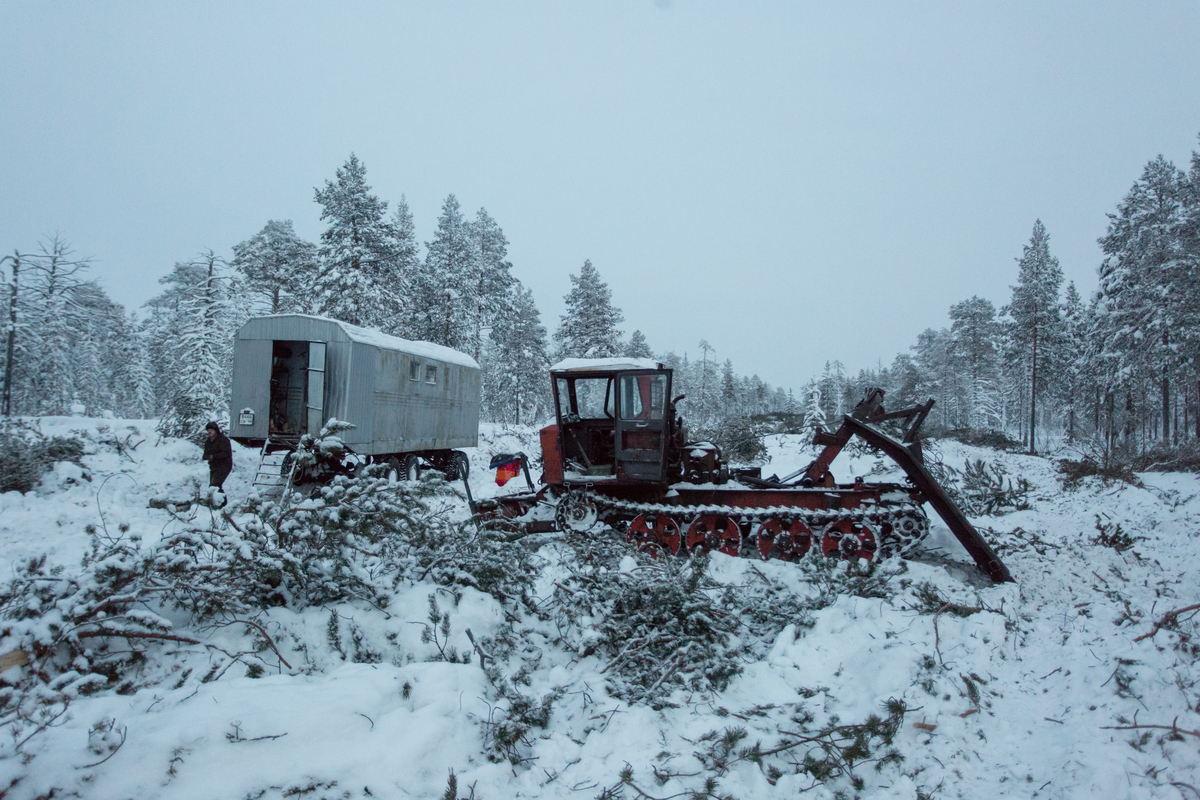
The construction of a road on the Sopochin family ancestral lands. The Sopochin family ancestral lands are squeezed between two oil companies. This is the last land where deer can still graze.
Sadly, this situation is not an exception – on the contrary, it is typical. There is no official information on how many conflicts of interest occur between Indigenous people and oil companies in Russia, but the system operates in such way that conflicts are inevitable, with consequences for animals, people and an entire way of life.
We need to fix this. Indigenous people are working hard to protect their culture and avoid unnecessary conflicts, but the system is working against them. Regulations under which oil companies operate in Russia should at least be in line with international norms that respect Indigenous rights.
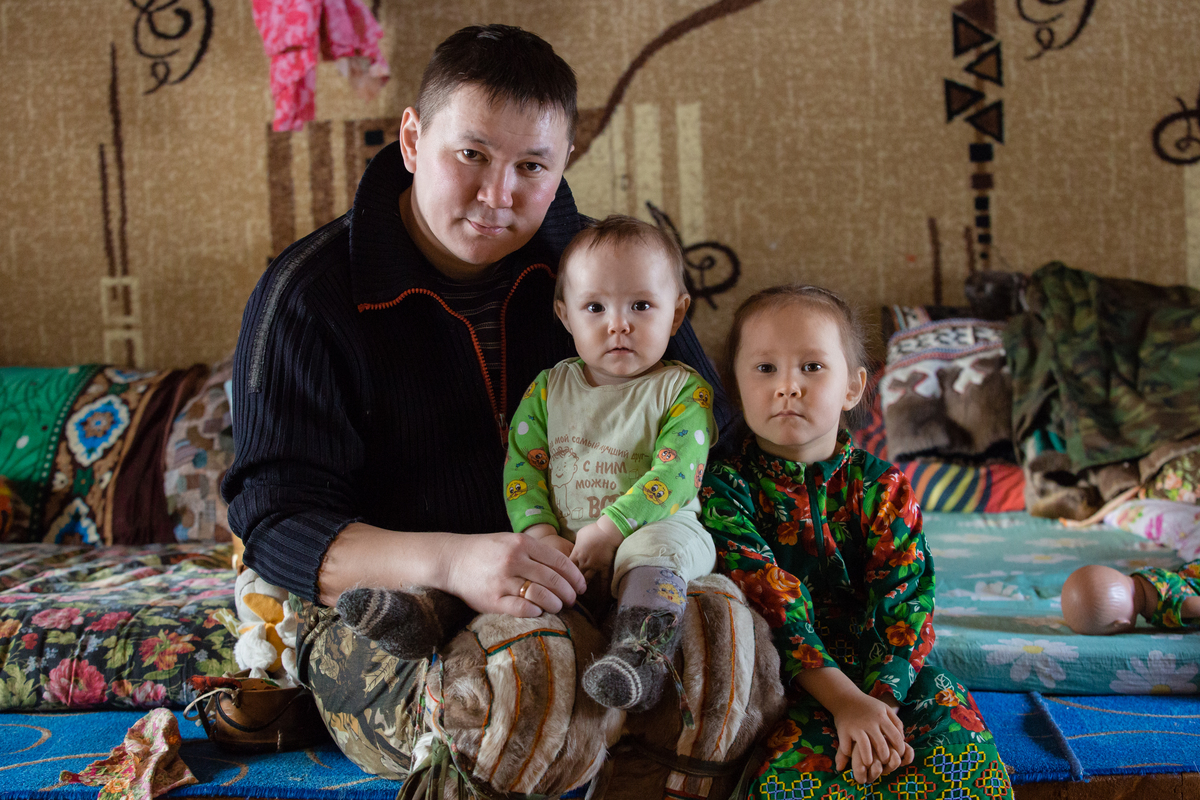
Stepan Sopochin is a son of Iosif Sopochin, the head of Sopochin family. The Sopochins are a large family of Khanty people. They preserve the traditional way of life and distinctive culture in the modern world. These lands are the second largest territory of traditional nature management in the Khanty-Mansiysk Autonomous Okrug.
A delegation from the United Nations Expert Mechanism on the rights of Indigenous Peoples visits Russia on March 17-21 and they can help change this situation. Send a letter to let them know the truth.
Konstantin Fomin is a press officer with Greenpeace Russia.
Witness the lives of the Khanty firsthand, in this 360° VR video from the region.
